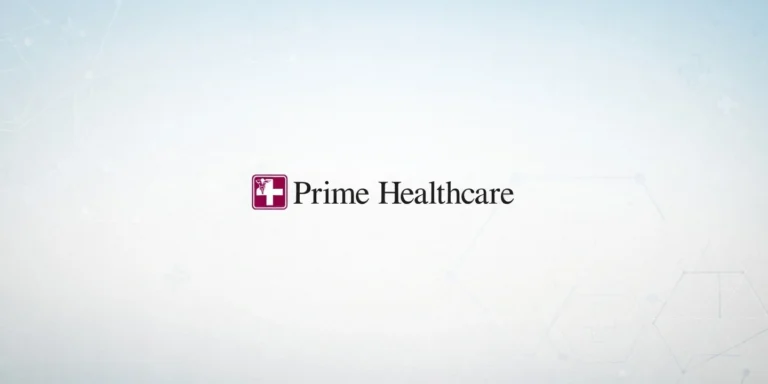
MaaT Pharma Announces Positive Phase 3 ARES Results for MaaT013 in Acute GvHD
MaaT Pharma (EURONEXT: MAAT), a clinical-stage biotechnology company specializing in Microbiome Ecosystem Therapies™ (MET) to improve survival for cancer patients through immune modulation, has announced positive topline results from its pivotal ARES study. This European Phase 3 trial evaluated the efficacy and safety of MaaT013, a microbiome-based therapy, for treating patients with acute Graft-versus-Host Disease (aGvHD) with gastrointestinal involvement (GI-aGvHD) who were refractory to steroids and either refractory or intolerant to ruxolitinib. The study met its primary endpoint, showing a significant gastrointestinal overall response rate (GI-ORR) of 62% at 28 days, surpassing the expected response rate of 38%. These results, assessed by an Independent Review Committee (IRC), underscore the unprecedented clinical efficacy of MaaT013 in this challenging patient population.

Unmet Medical Need in GI-aGvHD
GI-aGvHD is a severe complication that occurs after hematopoietic stem cell transplantation (HSCT), where the donor’s immune cells attack the recipient’s tissues. The condition, especially in patients who do not respond to conventional therapies like steroids and ruxolitinib, has poor survival outcomes. The 1-year survival rate for patients with refractory GI-aGvHD is alarmingly low at just 15% (Abedin et al., 2021), creating an urgent need for effective treatment options. MaaT013 offers a promising new approach, directly targeting the gut-immune interface to help modulate the immune response and improve outcomes for these patients.
Professor Mohamad Mohty, a leading hematologist and head of the Hematology and Cellular Therapy Department at Saint-Antoine Hospital and Sorbonne University, highlighted the significance of the study’s results: “Gastrointestinal involvement in aGvHD is a devastating condition, particularly for patients who do not respond to ruxolitinib. These individuals face an urgent unmet medical need, with alarmingly low survival rates and a critical lack of effective treatment options. The results for MaaT013 in this Phase 3 trial represent a groundbreaking advancement in third-line treatment for GI-aGvHD. By directly targeting the gut-immune interface, this innovative therapy has the potential to redefine disease management, bringing new hope to patients and clinicians alike.”
Breakthrough Efficacy and Safety Data
The ARES study treated 66 adult patients across 50 European sites, all of whom had GI-aGvHD refractory to both steroids and ruxolitinib. The study successfully achieved its primary endpoint, with a GI-ORR at Day 28 of 62%, well above the expected 38% response rate. Notably, 38% of patients experienced a complete response (CR), while 20% had a very good partial response (VGPR). Furthermore, the overall response rate (ORR) across all evaluable organs was 64%, with high rates of CR (36%) and VGPR (18%).
The study also demonstrated a strong survival benefit, with a 12-month probability of survival at 54%. Among patients who responded to treatment by Day 28, the survival probability was significantly higher at 67%, compared to just 28% for non-responders. These results underline the potential of MaaT013 to substantially improve survival rates in this challenging patient population.
MaaT013’s Safety Profile
MaaT013 was well tolerated by patients, with no increased risk of infection or treatment-related fatal events. The safety of MaaT013 was confirmed by the Data Safety Monitoring Board (DSMB) in October 2023, which reviewed the first 30 patients. The treatment showed a favorable safety profile, supporting its continued use in clinical practice. Ongoing pharmacovigilance and DSMB surveillance will ensure the continued safety of MaaT013 as more data becomes available.
Regulatory and Market Prospects
Given the promising results from the ARES study, this Pharma is advancing the regulatory submission process for 013 in Europe. The company plans to submit a Centralized Marketing Authorization Application (MAA) to the European Medicines Agency (EMA) by mid-2025, ahead of its initial timeline. This centralized procedure will allow for a single authorization across the EU, which could expedite patient access to MaaT013 and facilitate its market launch.
In addition to pursuing regulatory approval in Europe, this Pharma is also expanding the availability of MaaT013 through its Early Access Program (EAP), which exceeded 100 patient requests in 2024. The EAP will continue through the regulatory evaluation phase and up to commercialization, which is expected by the end of 2026. The program has also been expanded to the United States as of December 2024, with plans to launch a U.S.-based Phase 3 clinical trial for MaaT013 in 2025, contingent on securing financing.
Expanding the Role of MaaT013
The success of MaaT013 in the ARES study is a significant milestone in this Pharma’s broader mission to offer new treatment options for high unmet medical needs. MaaT013 is part of the company’s Microbiome Ecosystem Therapies™ (MET) platform, which leverages the gut microbiome to restore balance and enhance immune system function. MaaT013 is an off-the-shelf, standardized pooled-donor enema therapy, designed to treat acute diseases that involve severe treatment-induced dysbiosis. By restoring the symbiotic relationship between the gut microbiome and the immune system, MaaT013 aims to reduce steroid-resistant GI-aGvHD and improve patient outcomes.
About MaaT Pharma
This Pharma is a late-stage clinical biotechnology company at the forefront of developing innovative microbiome-based therapies to modulate the immune system and improve survival for cancer patients. Founded in 2014 and headquartered in Lyon, France, this Pharma is pioneering the use of microbiome-driven immunomodulators in oncology. The company’s proprietary pooling and co-cultivation technologies enable the development of high-diversity, standardized drug candidates designed to extend the lives of cancer patients.




